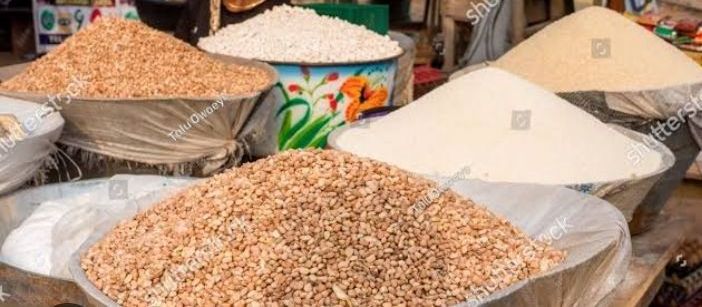A recent market survey across Port Harcourt has revealed a significant drop in the prices of staple food items, bringing relief to traders and consumers who have endured months of skyrocketing costs. Our correspondent, who visited major markets such as Mile 1, Mile 3, Slaughter, Crick Road, and Rumuokoro, observed noticeable reductions in the prices of rice, beans, garri, and other essentials.
According to traders, the decline follows a recent stabilization in supply chains and increased local harvest. For instance, a 50kg bag of foreign rice that sold for ₦94,000 now goes for ₦80,000, while local rice has dropped from ₦64,000 to ₦50,000. Similarly, the price of a bag of beans has fallen from ₦150,000 to ₦105,000, while garri now sells for ₦55,000–₦60,000, down from ₦90,000.
Mrs. Elizabeth Ukaegbu, a trader at Mile 3 Market, confirmed the price drop:
“Company rice was formerly sold at ₦95,000, now it is ₦80,000. Local rice with sand was ₦65,000 but now it is ₦50,000. Iron white beans used to be ₦150,000 but now goes for ₦105,000. Even brown beans, which was as high as ₦200,000, is now ₦110,000.”

Other foodstuff also recorded reductions. A bag of crayfish, which sold for ₦150,000 two months ago, now goes for ₦120,000, while a custard measure has dropped from ₦15,000 to ₦10,000. Onion prices have also seen a sharp decline, moving from ₦50,000–₦70,000 per bag to ₦25,000–₦30,000.
At Rumuokoro Market, a palm oil seller, Mr. Chidi Ebere, noted:
“Palm oil we bought at ₦65,000 is now ₦60,000. Groundnut oil has also reduced from ₦70,000 to ₦58,000. Customers are beginning to return because the prices are more encouraging now.”
Consumers, too, expressed relief at the trend. A resident, Mrs. Florence Nwankwo, told our reporter:
“Last month, I could not afford beans because the price was too high. But now with the reduction, I can at least buy some for my family. I just hope it will last and not go up again.”
To provide expert insight, our reporter spoke with Dr. Samuel Okafor, a market analyst and lecturer in Economics at the University of Port Harcourt. He attributed the drop in food prices to seasonal factors and short-term improvements in local supply.
“What we are witnessing now is largely the effect of the harvest season, particularly for staples like rice, beans, and garri. Increased local availability has pushed prices down. However, the reduction may not be permanent. Unless the government addresses inflation, transportation costs, and foreign exchange instability, we may see prices rise again in a few months,” Dr. Okafor explained.
He added that while the reduction is a welcome relief, long-term food affordability can only be guaranteed if the government invests more in agriculture, storage facilities, and rural infrastructure.
For now, both traders and buyers across Port Harcourt markets are breathing a sigh of relief as food becomes a little more affordable.

























